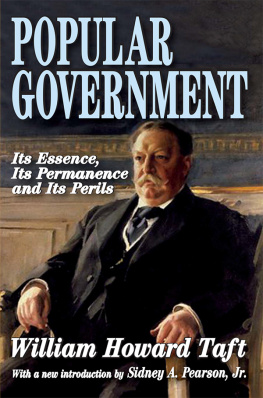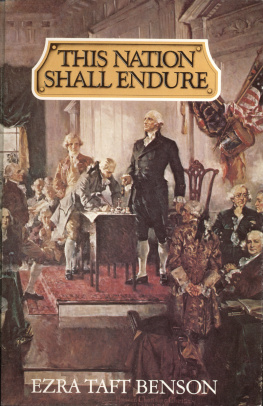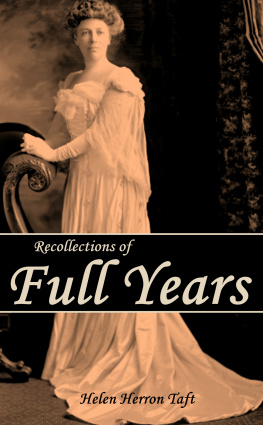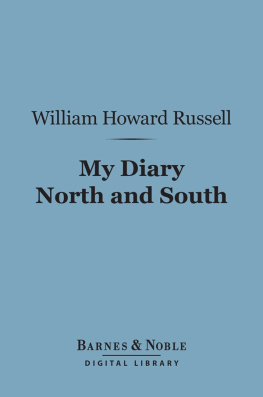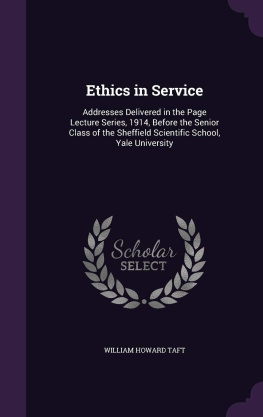THERE is a great deal of misconception as to what brought about this League of Nations. It has been said to be a fad of Mr. Wilson's ; it has been said that he surrendered things in the treaty in order to carry out his fad. That is great error. Mr. Wilson has not always been in favor of the League; neither has Mr. Lloyd George; neither has M. Clemenceau.
The truth is that this League was incorporated in the treaty be- cause the plain people of Great Britain and of France and of Italy demanded a league of nations as machinery by which this might be made, as nearly as possible, the last war. That feeling grew as the morale weakened in those countries, and the morale was stiffened by those among the plain people who urged that the introduction of a League of Nations would make war in the future improbable, and that they ought to make the effort to win the war because by so doing, and through a league of nations, they could accomplish a purpose justifying the enormous sacrifices that the continuance of the war would involve. This is why the first resolution passed by the confer- ence was that "Not only must there be a league of nations, but it must be the first thing considered, it must be an indispensable part of the treaty." All this came because of the knowledge of M. Clemenceau, Signor Orlando and Mr. Lloyd George that the plain people of those countries demanded such machinery. If it is adopted it will furnish one more instance of the common sense of the plain people that justi- fies a step forward which statesmen and halting philosophers are afraid to undertake.
Women, Working People, Churches The women in the country are in favor of the League. The work- ing men are in favor of the League. The churches are in favor of the League. Why? Because they fully understand its provisions? No, but because they believe that it is a sincere effort to unite the forces of all the nations of the world to prevent war as far as possible, and they are willing to undertake the experiment.
The League is a part of a treaty. Its constitutional validity, so far as we are especially concerned, depends on the question, What is the scope of the treaty-making power?
Now whether the League be constitutional, or not, depends upon the construction that should be put upon it. The objectors to the League, many of them, say that it creates a super-sovereignty, an over- government, a managing directorate to which are delegated powers that can only be exercised under our constitution by Congress. There might be such a league ; there might be a league such as France desired to have in which there should be a managing directorate with a chief of police, so to speak, under that directorate, with a million men in the police force, so that Chief of Police Foch, hearing of a disturbance in one part of the globe, could send word by cable to his superintendent there, "Take twenty thousand men, go over and suppress that disturbance, and put out the fire."
France was anxious to have it, because France wanted an arrange- ment by which Foch could order to the German frontier at once, on any threat of German attack upon France, half a million men, and her delegates argued strenuously before the Conference in favor of such an arrangement.
But the other nations declined, and our representatives declined, because they said, "Not only do we object on the ground of expedi- ency to parting with sovereignty such as that would be, but we have not the power under our constitution."
A Partnership Agreement The league which I have described is not the League that is now pre- sented for our consideration and adoption. What is it? It is only a partnership agreement. It is an agreement in which the partners agree to cooperate. It is written in the covenant what they shall do under the obligations so described. The circumstances under which those obligations arose are stated in the covenant; and it is for each member of the League necessarily to construe its own obligation, to determine how that obligation shall be performed, and then to perform it, itself, and not through any agency except its constitutional and normal agency to do the thing which it has agreed to do. I think if you will study the League, you will find that that is the condition. It is said that the council is the managing body, that it is the super-sov- ereign. There is no function to be performed by the council that is not advisory. The expression "to deal with" occurs once or twice, but you will find that expression refers rather to the scope of the subject mat- ter to be considered in the meeting, of which all members must take notice so as to be there, and that the description of the functions of the coun- cil itself is contained in the words "recommend," "advise," and "propose."
Upon those words and the construction of those words must depend what the function of the council is. Those who object on the ground that that is super-sovereignty maintain that "recommend" means "command," that "advise" means "direct" and that "propose" means to "order." I submit on the face of it that that is a strained construc- tion of the words, and that nothing but a most unusual context in each case would justify such a misinterpretation of the words accord- ing to their ordinary meaning. And when you consider that this League is a league not under a supreme court which has the power over every member to compel it to render its affirmative duty, but that this must depend on the spirit of cooperation, and that each nation must determine for itself its meaning, its construction by us will cer- tainly be reasonable.
Why, these gentlemen discuss this as if they were going before a hostile supreme court and they seek for strained constructions to im- pose them on the United States. No secretary of state would accept for a minute the view, when it would be presented to him, that the word "recommend" means "command," when a council would recom- mend a course of action. JTe would reject such a view without the slightest hesitation.
"Recommend" means a suggestion to be accepted or rejected. "Advice" means something to be accepted or rejected. And when you take away that foundation, the whole structure of the argument as to super-sovereignty fails and fails utterly.
The council consist of nine members, selected, five of them by the great powers : Great Britain, France, Italy, Japan and the United States ; and four of them by countries to be selected by the assembly. The as- sembly is a convention of the League, with delegates, one, two or three, from each country ; but whether one, two or three, with only one vote. The assembly has three functions; one is to elect non-mem- bers by a two-thirds vote to membership ; the second is to act in place of the council in conciliation, and recommending a settlement or com- promise ; the third is to advise the nations whether their treaties are in accord with the obligations of the League, or not. Those are the three principal functions of the assembly.
Fantastic Objections Now, I wish to call your attention to that organization in order to take up some of the more fantastic objections to the League, the char- acter of which is such as to indicate a poverty of objection. I do not mean to say there are not sincere arguments against the leaguesin- cerely madebut I do mean to say that the character of a number of objections is such as to indicate an absence of material.




